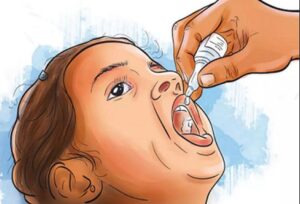What to Take for Cold, Cough, and Blocked Nose During Seasonal Changes

Monsoon Health Tips: Common Illnesses During Rainy Season and How to Stay Safe.Pic For Representation Purpose Only
As seasons change, especially the shift from warm to cold or vice versa, a common set of respiratory symptoms can occur such as cold, cough, and stuffiness in the nose. Despite these symptoms often being generally mild and self-limiting, they can also cause discomfort and impair the ability to perform daily activities. Knowing the causes of these symptoms and the available treatment options can lead to easier management.
Reasons Behind Cold, Cough, and Nasal Blockage
Weather changes can elicit viral infections or exacerbate an underlying allergic tendency. The common cold is often caused by rhinovirus, cough may be a response to post-nasal drip, throat irritation and/or inflammation of the respiratory tract, and nasal blockage is primarily due to inflammation of nasal mucosa and overproduction of mucus.
These three symptoms can closely resemble allergic rhinitis or sinus infections, therefore it can be useful to track the pattern and duration of these symptoms. Most cases are not serious however, continuous or severe symptoms may necessitate an examination. In such cases, treatments like cheston cold tablet are sometimes considered under medical guidance.
Use of Over-the-Counter Medicines
Mild to moderate symptoms of cold, cough and nasal blockage are usually managed by home care and the use of over-the-counter (OTC) medicines. One formulation is the cheston cold tab, which contains a variety of ingredients designed to help with your symptoms, like runny nose and sneezing, nasal blockage, and fever. It may contain an antihistamine (to combat your allergic reaction, if any), decongestant (that opens your nasal blockage), and a weak analgesic (to help you with body aches and fever).
The relief provided by both medicines and natural treatments is temporary and the medication should be taken according to labelled dosage, and for the duration necessary. Patients with pre-existing health conditions and anyone taking other medications should ask their healthcare provider before taking any OTC combination medications.
Other Management Strategies
There are a few simple non-pharmaceutical ways to help minimise symptoms:
- Stay Hydrated
Drinking adequate amounts of fluids will keep the throat moist and thin mucus, making it easier to expel. Warm liquids, such as soups or herbal teas, may help improve comfort.
- Use of Steam Inhalation
Steam inhalation 2-3 times a day can help thin mucus and relieve nasal congestion, can relieve the irritancy of airways. Add menthol or eucalyptus oil for temporary and pleasant relief.
- Keep Humidity Indoors
Dry indoor air can aggravate nasal congestion and coughs. A humidifier allows for keeping air moisture at a comfortable level, especially during the winter months.
- Rest and Recovery
Time is essential to allow the body to recover. Rest can support immune function and shorten the duration of an illness.
- The Role of Specific Medicines
In addition to combination tablets, there are individual medicines used to manage specific symptoms:
- Decongestants such as (pseudoephedrine or phenylephrine): cause a reduction of swelling in nasal passages, allowing airflow.
- Antihistamines (such as chlorpheniramine): useful to manage a runny nose and sneezing associated with allergy-related symptoms.
- Expectorants (such as guaifenesin): for loosening mucus in the chest, useful for productive coughs only.
- Cough Suppressants (such as dextromethorphan): for dry and irritating coughs.
It is important to choose medicines based on the type of symptom. You should not suppress a productive cough unless directed to do so by your doctor.
When to See Your Doctor
Symptoms of a cold and cough typically last roughly 7-10 days. If your symptoms:
- Fever lasts longer than 3 days
- Symptoms do not improve or worsen
- You are short of breath or have discomfort in your chest
- You are an infant, elderly, or have an underlying medical issue with asthma or diabetes
These conditions may reflect complications such as sinusitis, bronchitis or secondary bacterial infections requiring and specific treatment.
Lifestyle and Preventive Management
Prevention plays a big part in reducing the incidence and severity of the cold and cough when seasons change:
- Washing our hands frequently can also reduce virus spread. Do not touch their face with unwashed hands.
- A balanced diet, exercise and rest all help improve our immune defenses. Some may benefit from vitamin C, zinc or herbal supplements; however, these supplements should be taken under a physician’s guidance.
- Cold winds, sudden temperature changes, dust and pollution also exacerbate symptoms. Wearing culturally appropriate clothing or wearing a mask in dusty environments may help.
- Except in rare cases, yearly flu immunization is indicated, especially children, elderly and individuals with chronic issues.
- Special Considerations
For Children:
Children are more susceptible to viral infection, as they have not fully matured their immunity. Extreme caution is warranted for medications in children, especially paediatric cold medications; thus, they should only be given under the guidance of a doctor.
For Pregnant or Lactating Women:
Some cold medications may not be safe in pregnancy or lactation. A physician should always be consulted prior to taking any OTC medications.
For Older Adults:
Older adults may have multiple comorbidities. Decongestant and antihistamine should be used with caution, as these may cause confusions, sedation, elevated blood pressure and may also interact negatively with other medications.
Takeaway
Cold, cough and nasal congestion do seem to accompany our seasonal changes. However simple measures such as getting adequate rest, drinking lots fluids, and inhaling steam typically will be sufficient. Furthermore, OTC medications such as cheston cold tablet will address short-term relief, as directed. Nevertheless, we should carefully check for the nature and duration of symptoms; in any possible doubt, if symptoms do not dissipate or worsen, seeking professional care is a medical provision that ensures ruling out complications.
Although these conditions are self-limiting and usually mild, hygiene, health management and lifestyle, and aggressive early management will minimise any discomfort as well as ultimately enhance one`s recovery.












